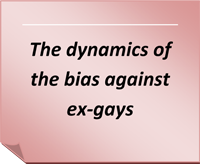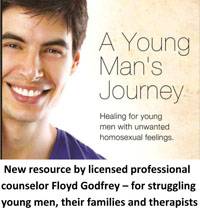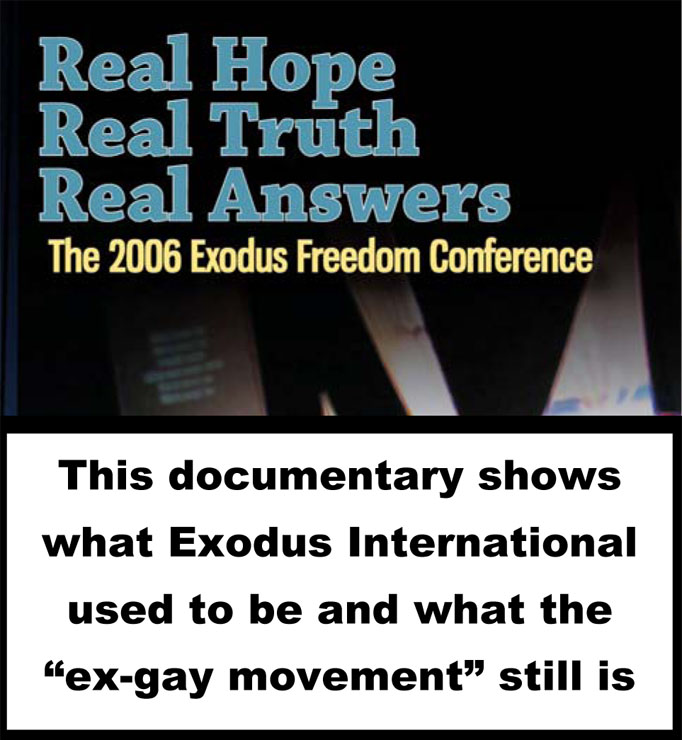Core Issues Trust responds to UK Christian Counsellors rejection of clients with unwanted SSA
The following excerpts are from the Core Issues Trust “Response to Association of Christian Counsellors Statement to its Membership: 10 January 2014:” … “‘One of the most important aspects in counselling is client autonomy. Any client seeking counselling has the right to indicate their goals and aspirations within counselling and to be respected for that choice. If a client seeks to explore change to their lifestyle or behaviour then using the core conditions the counsellor needs to respect that desire and work with them to their benefit. For the counsellor to reject this out of hand implies that they are seeking to impose their own agenda on the client and this is unethical.” (Association of Christian Counsellors, December 2012)”
“In January 2014 the ACC statement to its members now claims that supporting such an autonomous client’s goals to reduce or eliminate homosexual practice and/or feelings, is unethical. In addition, it misapplies the Equalities Act 2010 by implying that to hold such a view contravenes the law. …
“However, no substantiated attempt is made in this latest statement to explain why such a ban on therapeutic support in this area, is compatible with the Association’s commitment to client autonomy. If a client asks for help to reduce same-sex attractions, Core Issues Trust maintains this should be respected unless it is deemed to be ‘not in their best interests’. And the ‘not in best interests’ clause should be invoked only where appropriate exploration with the client reveals an evidence-based reason for such a decision. A blanket ban on therapy can only mean that it is never in the client’s best interests. Such a value judgement, acknowledging no single instance where such therapy might be appropriate, is unsubstantiated and merely arbitrary, and therefore unjust. It reflects the position articulated on the BBC (Sunday programme, 3rd February 2013) by Dr Di Hodgson of UKCP that ‘whether or not something works doesn’t mean that it is ethical or in the public interest or the right thing to do for someone. So we have taken a view in a way which is regardless of the scientific findings.’ The ACC should challenge this indefensible position which depends on ideology rather than science.”
“Finally, with respect to the ACC 2013 statement’s concern for ‘non-directive counselling’ it is the counsellor, not the client, who is to be ‘non-directive’. If a client has a life goal that is within reason
(and maximising heterosexual potential and/or wanting to save a marriage is surely within reason) then the counsellor should pursue that direction – this is still ‘non-directive’ in that the counsellor has not determined the direction.If however, a counsellor says that therapy is not in a client’s best interests, without reference to empirical evidence – this is itself ‘directive counselling’, lacking respect for both client autonomy and individual responsibility.Core Issues Trust recognises and supports the efforts of the ACC to regulate counsellors who are Christians, to maintain public safety and accountability. It requests the organisation to provide empirical evidence to support its misleading statement produced on the matter of counselling same-sex attracted persons. It encourages the ACC to avoid compromise of its members’ right to teach and uphold orthodox Christian sexual ethics and urges the Association to take up with the Professional Standards Authority (PSA) the matters we have set out above.”





